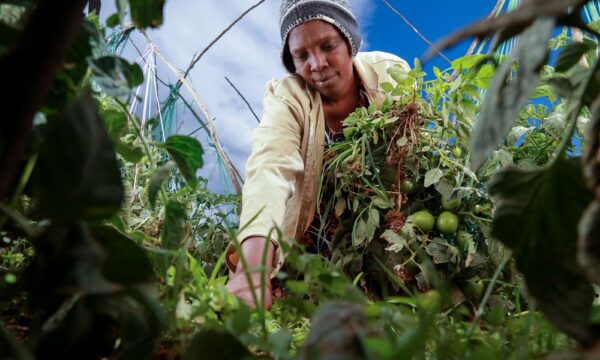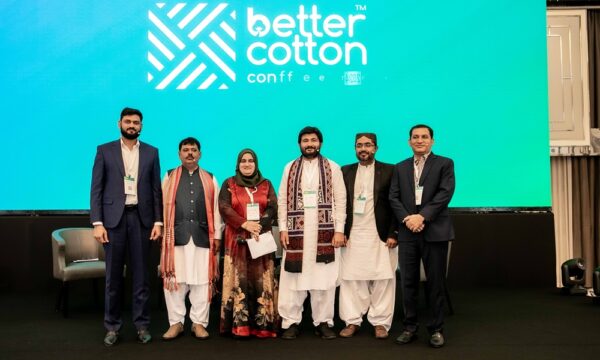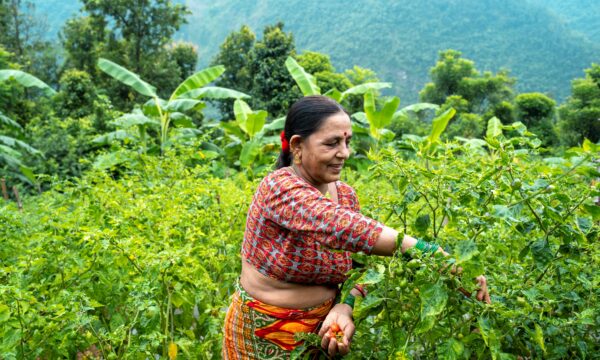
CABI’s centre in Pakistan is helping to foster the next generation of scientists interested in securing greater food security in the world by offering internships for agricultural students at its biological control laboratories in Rawalpindi.
Thirty-one entomology and plant pathology students from Pakistan’s top agricultural universities are taking part in ongoing research projects, fieldwork, data analysis, and experimentation regarding potentially devastating crop pests and diseases.
Applying theoretical concepts to real-world scenarios
The collaboration between CABI and Pakistan’s leading agricultural universities marks a significant step towards bridging the gap between academia and practical application in the agricultural sector.
By welcoming students into the research facilities, CABI provides them with a hands-on learning experience that complements their theoretical knowledge gained in classrooms.
This practical learning allows them to apply theoretical concepts to real-world scenarios, thereby enhancing their problem-solving skills and critical thinking abilities as well as technical knowledge, professional networking, and industry insights.
By having the chance to work alongside experienced researchers and experts in various fields of agriculture, the students gain exposure to cutting-edge research projects, innovative technologies, and sustainable agricultural practices.
This exposure not only broadens their understanding of the agricultural landscape but also inspires them to explore new avenues for research and development in Pakistan.

Importance of networking
One of the most valuable aspects of internships at CABI is the opportunity for networking and professional development.
Interns interact with professionals from diverse backgrounds, including researchers, scientists, policymakers, and industry experts.
These interactions not only broaden their professional network but also provide insights into potential career paths and opportunities in the agricultural sector.

During a discussion with the interns, Dr Babar Bajwa, Senior Regional Director, Asia, emphasized the availability of CABI’s online resources, which can significantly contribute to their understanding of agriculture and empower them to make informed decisions in the field.
Feedback from the students
Positive feedback has been received from the students. One student highlighted that prior to the internship, she lacked the basic skills for laboratory work but finished the programmewith the necessary knowledge that also included computer skills for data recording and further professional development.
Another female student emphasized how she learnt practical skills in biological control in a professional and supportive environment conducive for inclusive learning, feeling encouraged to advise other female students to consider the internship.
Innovation and growth in the agricultural sector
Dr Bajwa, said, “Internships at CABI offer students a unique opportunity to contribute meaningfully to the advancement of agricultural research and development in Pakistan.
“By fostering collaboration, we are offering students exposure to innovative research, and hands-on learning experiences, facilitating networking and professional development, and promoting sustainable agriculture.
“CABI is helping to nurture the next generation of leaders who will drive innovation and growth in the agricultural sector.”
The students, of which 21 are men and 10 women, are from the University of Agriculture Faisalabad, Pir Mehr Ali Shah Arid Agriculture University Rawalpindi, University of Karachi, and the University of Poonch Rawalakot, Azad Kashmir.
Gender diversity in the internship programme is encouraged and an inclusive environment is provided. By incorporating gender perspectives into the internship programme, a more equitable and inclusive agriculture sector can be promoted.
Additional information
Authors:
Mr Fazlullah, Entomologist/In-charge biological control laboratories
Dr Abeera Umar, Research Fellow
For more information, please contact:
Mr Abdul Rehman, Deputy Director Projects Implementation and Research
+92 (0) 310 5939722
4 Comments
Leave a Reply
Related News & Blogs
Forging a new approach to agriculture research from a gender lens
While working with women farmers across Africa for the past 17 years, Dr Lora Forsythe, lead of the Gender and Social Difference research group at the Natural Resources Institute, University of Greenwich in the United Kingdom, heard a common refrain “M…
16 April 2025





what is procedure of applying in intership?
Great to hear as internships link university graduates with industry
Procedure to apply for internship
Sir I am interested